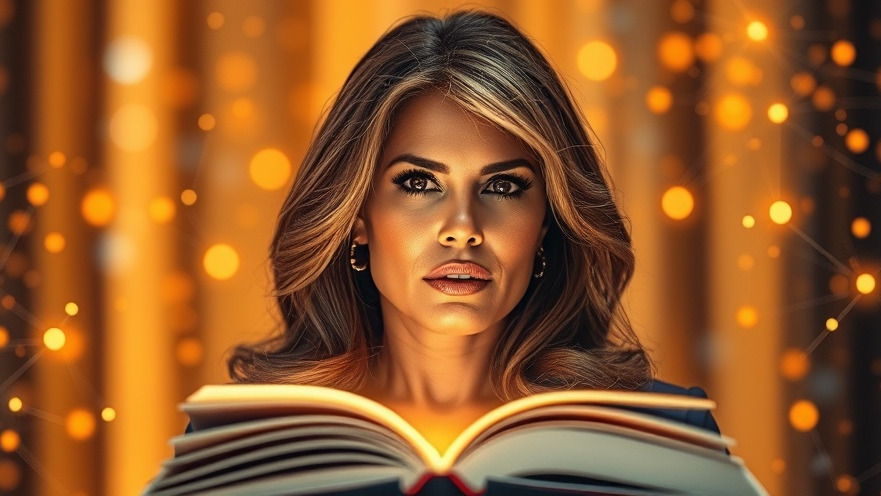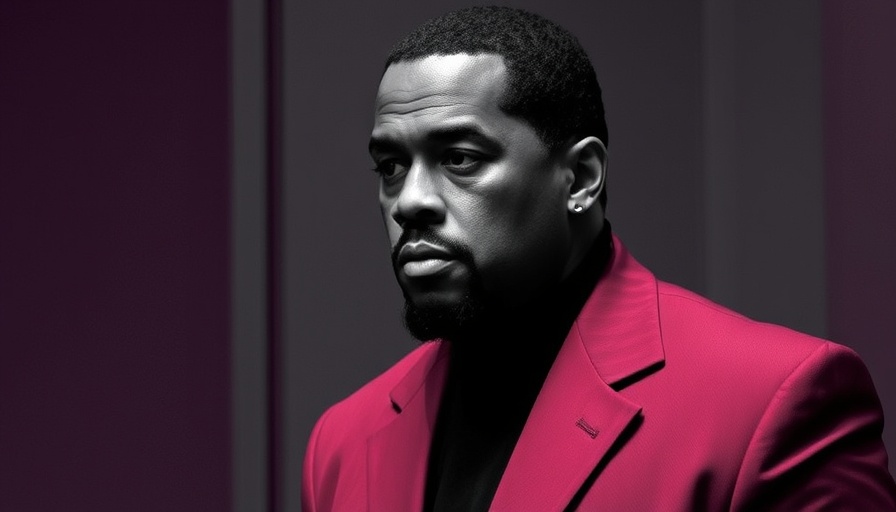
A Revolutionary Approach to Storytelling
In the realm of literature and media, the boundaries of creativity are being pushed wider with the advent of artificial intelligence (AI). Melania Trump's recent release of an audiobook memoir, created with AI technology, is a notable example of how traditional storytelling is evolving. This ambitious project highlights the exciting intersection of technology and personal narrative, inviting us to consider the implications of AI in storytelling.
What Does AI-Generated Content Mean for Readers?
For many, the concept of AI in literature may evoke curiosity and skepticism. AI-generated content utilizes algorithms and vast data sets to produce text that mimics human writing. This technology, while rising in popularity, raises questions about authenticity and authorship. It's important to analyze how AI influences the crafting of personal stories—especially when a high-profile figure like Melania Trump is involved. While machine learning can analyze speech patterns and style, can it truly capture the essence of human experience?
AI: A Tool for Global Storytelling
AI’s role in storytelling isn't limited to memoirs. It offers expansive possibilities across cultures and languages. Projects like AI-generated translations and story adaptations condense narratives into accessible formats, catering to diverse audiences worldwide. As technology waves the flag for global storytelling, aspiring writers and creators can leverage AI for inspiration, breaking down language barriers and connecting with broader audiences. This democratization of storytelling invites engagement from people across varying backgrounds—a critical element of our interconnected world.
What Lies Ahead: AI in Creative Expression
As we step into a future where AI continues to develop, the creative sector is at a crossroads. We may witness AI contributing to personal storytelling in ways we never imagined. For instance, we could see tailored AI-generated memoirs that reflect the unique experiences and histories of their authors. As AI tools become more sophisticated, the concept of a 'ghostwriter' may transform; instead of a human creative partner, an AI could act as an ally in articulating life’s complexities.
Ethics and AI: A Necessary Discussion
With advancements in AI technology, ethical considerations become vital. There’s concern regarding data privacy, the possibility of misinformation, and the cultural implications of automated storytelling. Aspiring authors and readers alike must engage in critical discussions about how AI shapes narratives. When listening to an AI-created memoir, are we truly getting a complete picture of the author’s thoughts and feelings? Or is something fundamentally lost in translation?
As we reflect on these ethical questions, it’s clear that understanding AI is more important than ever. Embracing AI in art and literature doesn’t negate the need for critical thinking and awareness. For those intrigued by these advancements, starting with resources about AI basics and understanding AI may prove essential in navigating this new storytelling landscape.
In an age where technology can augment our reality, exploring the implications of AI in memoirs like Melania Trump’s is vital. By engaging with this integration of technology and personal narrative, readers can enhance their understanding of both AI innovations and the power of authentic storytelling.
Your Journey into AI
Having explored the fascinating implications of AI in storytelling—and Melania Trump's foray into AI-generated memoirs—readers are encouraged to delve deeper into AI through various educational resources. Understanding artificial intelligence fundamentals and learning AI can illuminate how these innovations may shape multiple aspects of lives, careers, and personal narratives.
 Add Row
Add Row  Add
Add 




 Add Row
Add Row  Add
Add 



Write A Comment